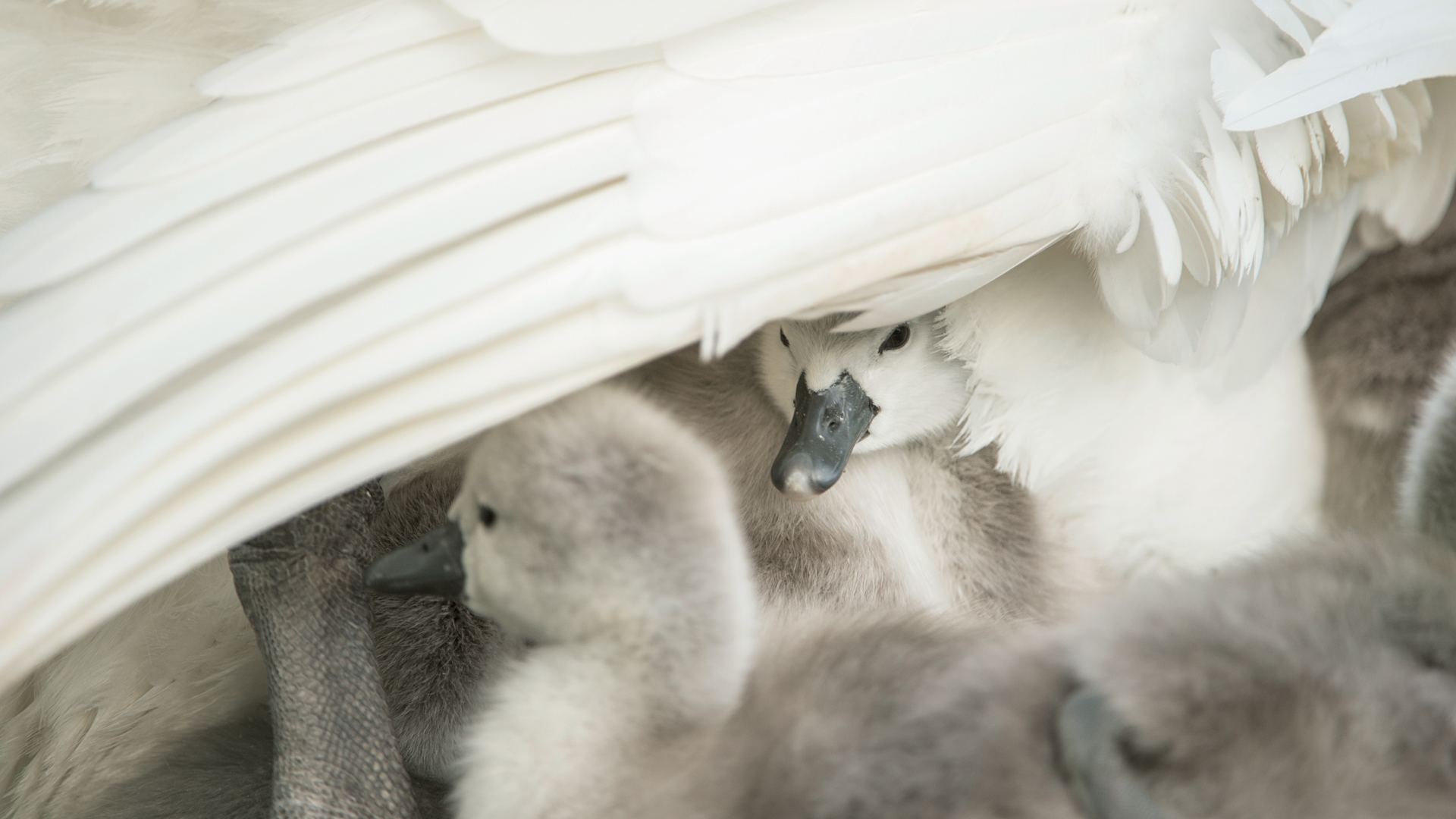Since lockdown started, regulation walks around my local park took me past a pond where a mother swan was sitting, every day without fail, on her nest. In these strange, surreal times, it began to feel – me stuck at home, she on her nest – as the weeks went by that we were somehow in it together.
Last week, when the proud parents could be seen showing off their four cygnets to a gaggle of parkgoers taking pictures and talking excitedly to each other, it was clear that the entire community had invested part of their locked-down life in this new family. I’m sure this scene is being reflected across the country.
But it also made me concerned about their wellbeing, so we asked the RSPB for tips about how to look out for all types of waterfowl and their offspring.
DOS AND DON’TS FROM THE RSPB
FEEDING
We may all have been enjoying nature in lockdown, and now as we begin to venture outside more, we need to be careful of how we interact with the wildlife we have recently been watching from home. When it comes to feeding birds, just like us birds need a varied diet to stay healthy. Although ducks and swans can digest all types of bread, too much of it can leave them feeling full without providing all the important vitamins, minerals and nutrients they need.
Bread isn’t harmful, but only feed small amounts to birds. As a suitable alternative, use foodstuffs such as sweetcorn, porridge oats, crumbled biscuits and defrosted frozen peas, as well as bird seed.










